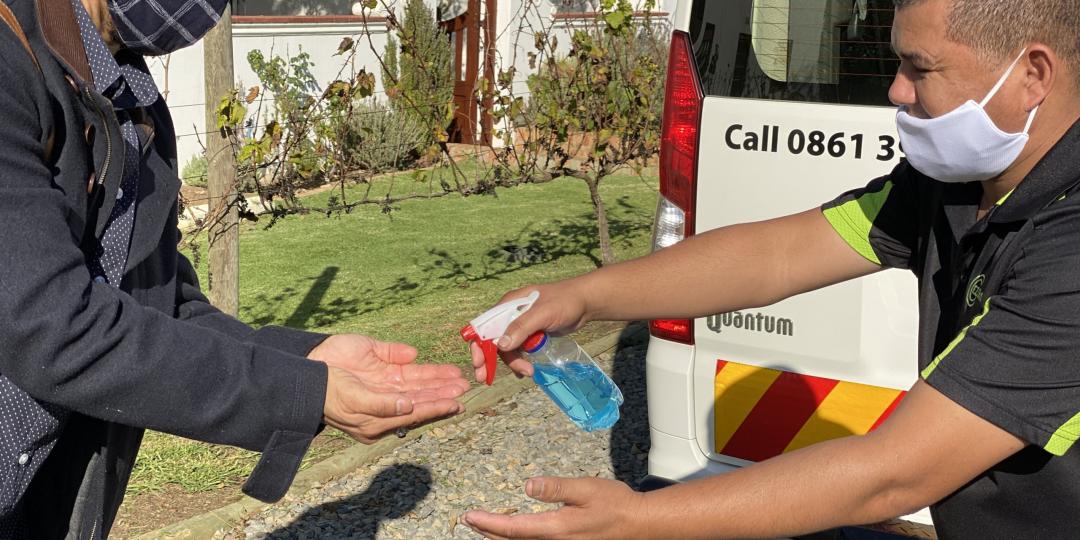Travel is picking up again, and shuttle and car-rental companies are looking to replenish their pared-back fleets. But due to a global supply disruption of semiconductor chips, which are essential to the manufacture of vehicles, this is proving difficult.
Semiconductor shortage
The cessation of travel during the COVID-19 pandemic forced car-rental companies to trim their fleets. Compared with pre-pandemic numbers in the previous eight months, available rental vehicles dropped 60% by December 2020, according to a report in Business Insider.
Freight News Editor, Eugene Goddard, said the problem in the market was a result of the global lockdown. Due to a sharp fall in demand, a hold was placed on manufacturing semiconductors, but now the manufacturing industry is battling to keep pace with the accelerated surge of demand as markets reopen.
A report from Freight News said the global lag was expected to impact supply throughout 2022.
Impact on business
Guyck Van Heerden, MD of EZShuttle, told Tourism Update that the company had had to trim its fleet during lockdown. “Our fleet was reduced by around 55%-60%. We are now seeing a very strong return to normality in the last month or so but there is a huge supply constraint around vehicles.”
Van Heerden said he had 20 vehicles on order, but could not receive them until May. “I have already taken delivery of 20 this month, which were placed in October. So you’re looking at about 5-6 months’ lead time on vehicle orders, which is unheard of.
“We are probably turning away one out of every five requests at the moment due to capacity constraints. And, as you can imagine, we are at the bottom of that supply chain. Whoever we turn away has already first been turned away by car-rental companies. So there’s a knock-on effect.”
Van Heerden does not foresee a quick fix. “My manufacturers are telling me that we are only looking at marginal normalisation of the market in about four to six months from now, and probably only a 100% return to normal capacity in about a year.”
Owner of Airport Link, James Hanson, said it was a bit too soon to know what the impact of the vehicle shortage on the industry would be. “We had a fairly busy December and beginning of January, but obviously not as good as two years ago. However, we didn’t need to buy new vehicles.”
Dorian Toussaint, CEO and Co-Founder of ground travel connector and aggregator, Tousca, said low supply hadn’t affected much of ground transport yet, because travel volumes were still so low.
“When I look at all the operators we deal with, they downscaled during COVID, and now we are starting to see an uptick in travel. All the news is indicating that travel is going to increase substantially. I do think that will create a problem later in the year.”
The second bottleneck
A shortage of vehicles is only one of two giant problems faced by these transport providers. Another perhaps greater issue that transport businesses continue to face is the difficulty and delay in obtaining permits for passenger vehicles from the Department of Transport (DOT). This delay is well documented over several years and is a systemic problem for the transport sector, as reported in Tourism Update here.
Hanson said: “The DOT has been notoriously slow at every point. Our insurance company is more concerned that we have a certificate of fitness rather than the necessary updated permits.”
EZShuttle operates across the country, and Van Heerden said it was clear to him that Cape Town was the one municipality without issues. “What we really need is for the DOT to step up and smooth the process for the industry to re-emerge. The DOT is not doing that – it’s as if there’s nobody there,” he said.
Toussaint said this was one of the biggest challenges with the onboarding of new operators. “They have all required permits – professional driving permits, certificate of fitness, passenger liability, and even the application for the permit but it takes up to two years to get those issued. The whole process is completely erroneous – they say you shouldn’t have a car before you apply, but when you apply you have to give car details,” he said.
“A lot of operators have to work without it, as their hand has been forced. It is just a legislative requirement. From an insurance risk perspective, they are still covered. But if you get stopped in a roadblock, you can get pulled over, your passengers removed from the vehicle, and they can impound the vehicle, so it does impact operators,” said Toussaint.























